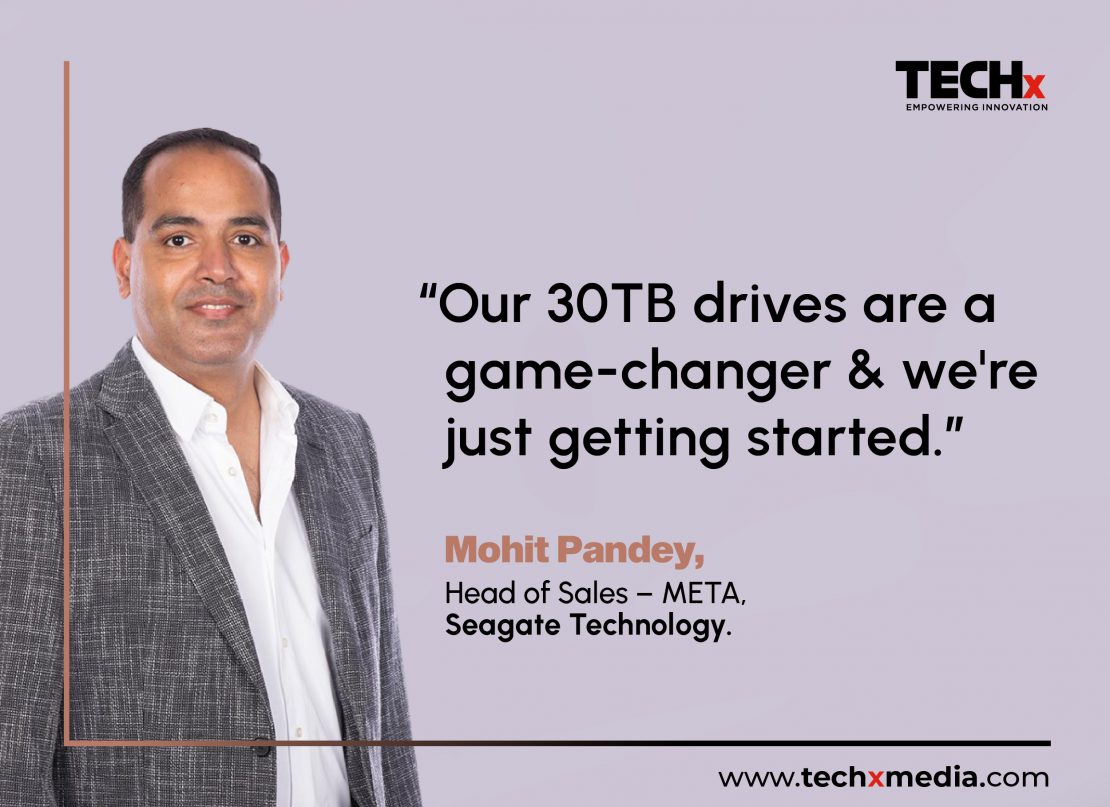
Seagate is eyeing the development of 50-terabyte storage solutions in an age where artificial intelligence is gaining prominence. The rise of AI is having a significant impact across all sectors, sparking a new wave of disruption and innovation. One area crucial for AI systems is the server and hardware technology on which they run.
Without this solid backbone infrastructure, the instant feedback from tools such as ChatGPT and other AI applications that rely on a variety of large language models simply wouldn’t be possible. Companies like Seagate are playing a critical role, ushering in a new generation of hardware capable of meeting these demands.
Mohit Pandey, the Head of Sales for the META region at Seagate Technology, recently explained the significance of this by highlighting how Seagate is aggressively moving toward a future where 50-terabyte storage capacity HDDs for servers and cloud centers will become a reality, enhancing the capacity of hard drives on the market. “We changed the game by introducing 30-terabyte drives to the market, and we’re not stopping there. This innovation, which we call MOZAIC 3+, sets a new standard in storage capacity,” Pandey explained.
Mozaic-enabled hard drives are the world’s most efficient storage solutions, capable of lowering acquisition and operational costs while increasing productivity. With Mozaic’s increased areal density, customers can store more data without increasing the consumption of space, power, or natural resources.
Seagate launched Mozaic 3+ earlier this year, aiming to provide enterprises with more room to scale for emerging applications and explosive data growth. This hardware further allows data centers to retain and leverage more data for analytics, archiving, content delivery, and disaster recovery, helping to close the current gap between data generated and data stored.
Pandey stated that the roadmap intends to scale up this hardware technology in the months and years to come. “Plus, it will evolve into MOZAIC 4, 5, and beyond. We have a roadmap that extends to 50 terabytes of storage capacity,” he added.
Why 50 Terabytes is a Key Milestone
As Pandey explains, this ultimate pivot toward a 50-terabyte world will have major benefits for technologies such as AI.
“All the data generated by new technologies like AI, machine learning, and the Internet of Things (IoT) needs to be stored somewhere, and ultimately, that’s on a hard drive,” said Pandey.
“At Seagate, we are increasing the areal density of our drives, which means we can store more data in the same physical space. This innovation significantly reduces the total cost of ownership,” he added.
In practical terms, Pandey explained that this means businesses and consumers can store more data at a lower cost per terabyte. This reduction in storage costs makes it more affordable to handle the vast amounts of data generated daily, enabling greater use of advanced technologies in our everyday applications and business transformations.
“Ultimately, it allows for greater innovation and efficiency across various industries,” Pandey concluded.